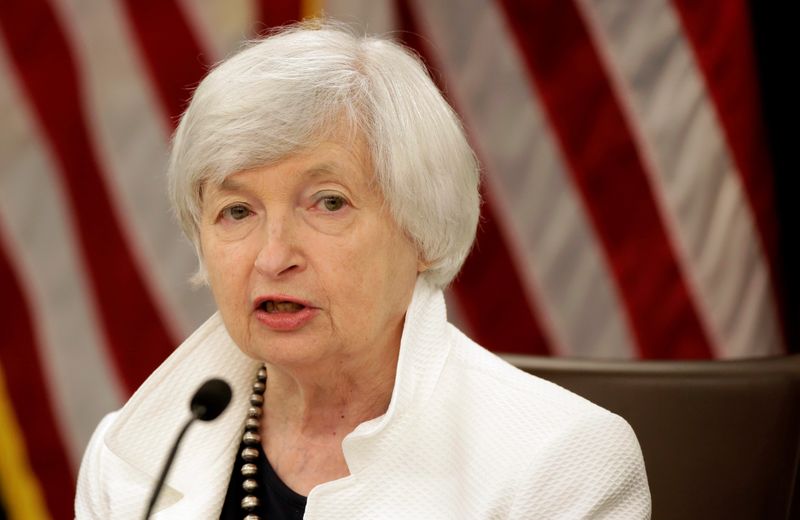By Andrea Shalal and David Lawder
WASHINGTON (Reuters) - U.S. Treasury Secretary Janet Yellen on Thursday threw her support behind a new allocation of the IMF's own currency, or Special Drawing Rights, but said broad parameters were needed to boost transparency on how the reserves are used and traded.
Reversing the opposition of the Trump administration, Yellen told G20 finance officials in a letter that a new SDR allocation could boost liquidity for poor countries, which have been particularly hard hit by the global coronavirus pandemic.
The U.S. Treasury chief gave no specific size for possible allocation of SDRs, which can be converted to hard currency by IMF members. Italy, which holds the presidency of the G20 this year, and other members of the group of rich and emerging economies have backed a $500 billion allocation, but the United States had been guarded about its view until now.
Yellen said an SDR allocation and steps to boost low- and zero-interest lending by the World Bank and International Monetary Fund were needed to help contain the pandemic and mitigate its devastating impact, particularly in poor countries with fewer resources.
"Without further international action to support low-income countries, we risk a dangerous and permanent divergence in the global economy," Yellen said in her letter, which was released a day ahead of her videoconference with other G20 finance officials.
"An allocation of new Special Drawing Rights (SDRs) at the IMF could enhance liquidity for low-income countries to facilitate their much-needed health and economic recovery efforts," she said. "To make this tool effective, the G20 must work with a broad coalition of countries on a set of shared parameters for greater transparency and accountability in how SDRs are exchanged and used."
IMF spokesman Gerry Rice welcomed Yellen's statement as "a very helpful letter on a very important issue." The IMF's previous SDR allocation during the global financial crisis had "served the world very well" and could do so again in the current crisis," he said.
Civil society groups, religious leaders and some Democratic lawmakers in the U.S. Congress have called for a much larger allocation valued at $3 trillion, but sources familiar with the matter said they viewed such a large move as unlikely for now.

The IMF last issued new currency reserves of $250 billion in 2009, as economies around the world battled the global financial crisis.